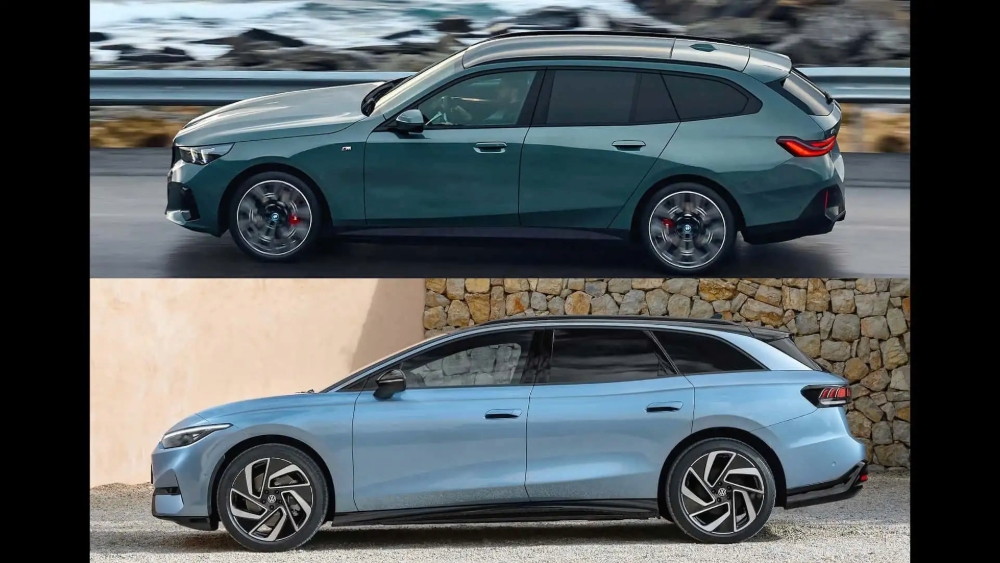Published
- 3 min read
Battle of electric sedans: BMW i5 vs VW ID.7

Volkswagen’s VW ID.7 enters the ring as a fully electric large sedan, directly competing with BMW’s established BMW i5. The tests the entry-level variants of these two electric vehicles to determine which is superior. The VW ID.7 Pro and BMW i5 eDrive40 go head-to-head, with the VW measuring 4.96 meters in length, while the BMW stretches a full 10 centimeters longer.
Performance comparison
The BMW i5 packs a 250 kW (340 hp) electric motor, delivering 430 Nm of torque, and accelerating from 0 to 100 km/h in just six seconds. By comparison, the VW ID.7 offers slightly less power with a 210 kW (286 hp) motor, but it compensates with 545 Nm of torque, reaching 100 km/h only half a second slower than the BMW. Both sedans are rear-wheel drive, and their batteries offer similar capacities at around 80 kWh.
Efficiency and charging
When it comes to energy efficiency, the VW ID.7 emerges as the more economical choice. It consumes 18.8 kWh/100 km, compared to the 21.9 kWh/100 km of the BMW i5. However, the BMW has an advantage in charging speed, achieving an average DC fast charging rate of 136 kW, while the VW manages only 107 kW. This difference results in a 27-minute charging time from 10 to 80 percent for the BMW, compared to 34 minutes for the VW.
“34 minutes to charge from 10 to 80 percent isn’t up to modern standards,” the test review noted about the ID.7, though VW officially claims 28 minutes. Despite favorable conditions during the test, the BMW was quicker than even its official claim, charging fully in just 27 minutes.
In terms of realistic range, the VW ID.7 comes out on top, offering a 410 km range, while the BMW i5 falls slightly behind with 370 km.
Price and value for money
Both electric sedans showcase their respective brand strengths. The BMW i5 is praised for its sporty handling, well-tuned chassis, and powerful acceleration. However, the VW ID.7 is recognized for its practicality, spaciousness, and efficiency, making it a highly everyday-friendly option at a more affordable price point.
One drawback for the BMW, despite its larger dimensions, is its relatively limited interior space compared to the VW. The higher price tag of the BMW is another consideration. As for the VW ID.7, critiques included software issues, brake sensitivity, and an underdeveloped voice control system.
Final verdict
While the VW ID.7 is a well-rounded electric sedan, the BMW i5 ultimately proves to be the superior vehicle in terms of driving dynamics and overall refinement. That said, for those seeking the best price-to-performance ratio, the VW ID.7 remains a compelling choice.
In conclusion, the editorial team remarked:
“The VW ID.7 is impressive, but the BMW i5 sets the standard in its class.”

Douglas K. Richey is a freelance writer and editor with over 15 years of experience in the automotive industry. He has worked as a writer, editor, and content manager for a variety of publications.